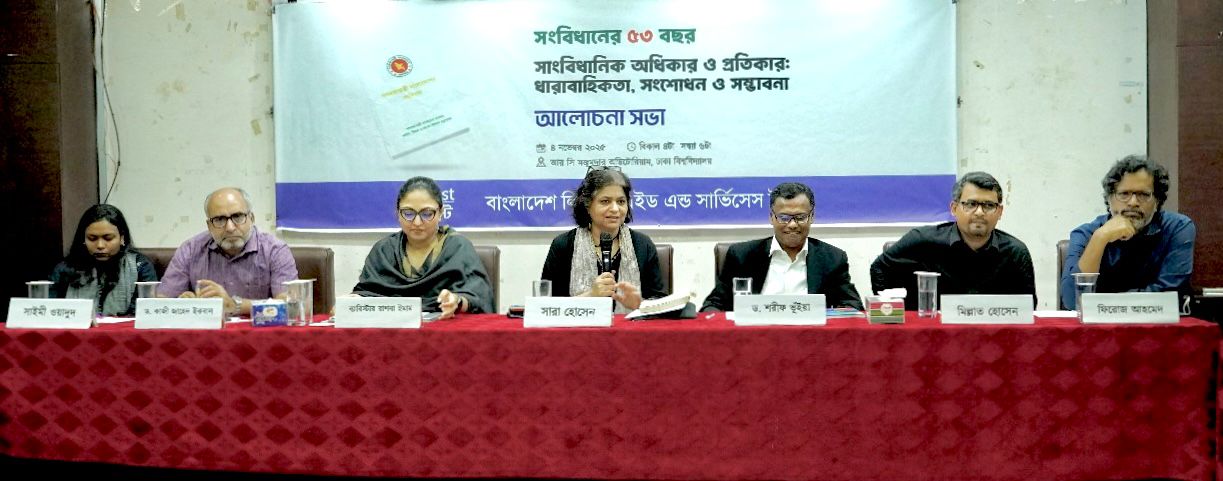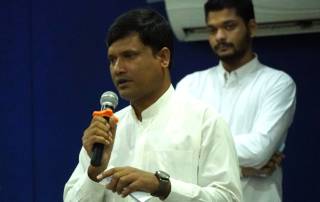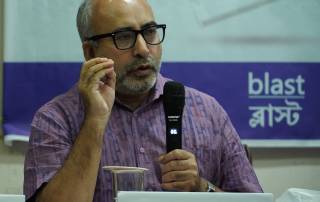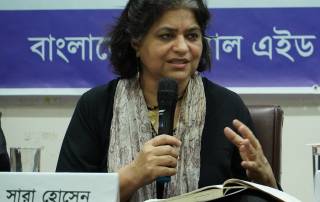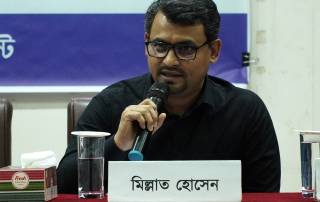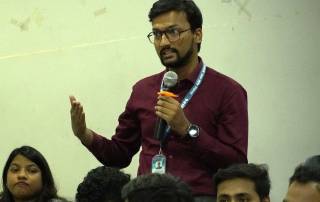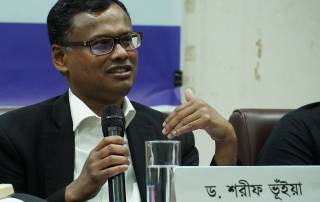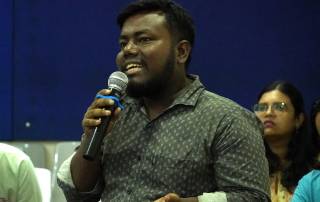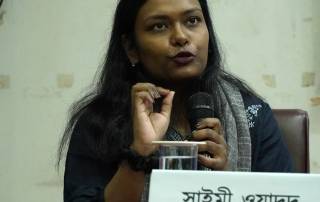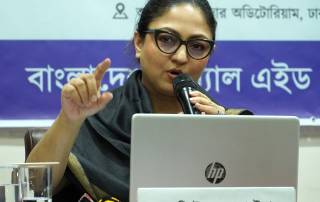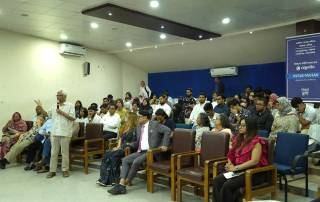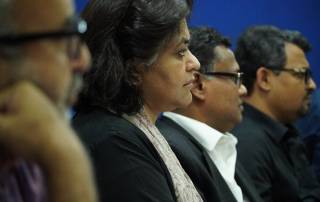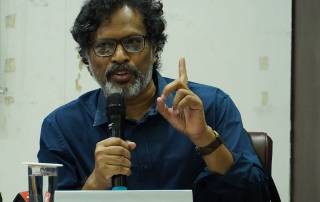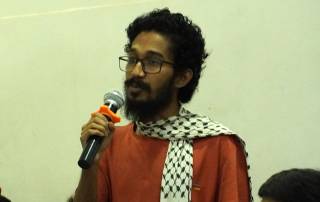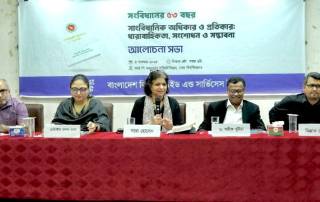4 November 2025
Press Release
Speakers Call for Ensuring and Expanding Constitutional Rights Through Necessary Reforms
Experts stress need for strengthening rights to equality and non-discrimination, safeguards on arrest, freedom of expression, and right to health at Dhaka University discussion marking 53 years of Bangladesh’s Constitution
Dhaka, 4 November 2025:
Speakers at a discussion marking the 53rd anniversary of the Constitution of Bangladesh emphasized the urgent need to ensure the effective implementation of fundamental rights through necessary reforms and progressive interpretation. They called for the core values of the Constitution—equality and non-discrimination—to be realized not only through the courts but also within political and social culture.
The discussion, titled “Constitutional Rights and Remedies: Continuity, Reform, and Possibilities,” was organized at the R. C. Majumdar Auditorium of the University of Dhaka, where legal experts, academics, and human rights advocates reflected on fundamental rights, equality, constitutional reform, and future possibilities.
Equality and Non-Discrimination
Psyme Wadud, Lecturer at the Department of Law, University of Dhaka, highlighted the Supreme Court’s landmark rulings to uphold the principle of equality. A key objective of the July Uprising, she said, was to establish a discrimination-free state—an aspiration not yet fully reflected in constitutional reform proposals.
She called for expanding affirmative action to reach the most marginalized communities and stressed that meaningful progress would require not only legal amendments but also a transformation in political culture, and inclusion of diverse voices.
Personal Law and the Question of Constitutional Supremacy
Lawyer, and writer Millat Hossain stated that although Article 7 declares the Constitution to be the supreme law of Bangladesh, in reality, personal laws often take precedence—undermining the right to equality before the law.
He argued that despite guarantees of equal rights, discrimination continues in practice. The references in the 1972 Constitution to a singular Bengali identity and the later amendment adoptionon of a state religion, he noted, have marginalized indigenous peoples, Dalits, and religious minority communities. “We must envision a state,” he said, “where every person can proudly and honestly assert their own identity.”
Right to Health and Accountability
Barrister Rashna Imam, Advocate, Supreme Court, observed that while the right to health has yet to be formally recognized as a fundamental right, it has gained strong legal grounding through judicial interpretation of the right to life, drawing upon fundamental principles of state policy.
Citing the Dr. Mohiuddin Farooque case, where the High Court recognized the right to a healthy environment as part of the right to life, and other decisions on the right to emergency medical treatment, and on organ donations, she underscored the need for robust and enforceable legislation to guarantee equitable and accountable health services for al.
Arrest, Detention, and Constitutional Safeguards
Dr. Qazi Zahed Iqbal, Advocate, Supreme Court, said that although the Constitution provides key safeguards on arrest and detention, these have bene undermined in practice due to among others the arbitrary application of Sections 54 and 167 of the Code of Criminal Procedure and the Special Powers Act 1974, which permit preventive detention.
He referred to the Supreme Court’s landmark judgments in the BLAST and Saifuzzaman cases, and directives to ensure safeguards on arrest without warrant, which hav been partially incorporated in new legal amendments to the Code. Dr. Iqbal emphasized the need for alignment of domestic laws with international human rights standards in particular the Convention against Torture, and for ensuring effective remedies.
Freedom of Thought, Conscience, and Expression
Firoz Ahmed, Writer and Member, Constitutional Reform Commission, stated that restrictions on freedom of thought and expression have existed since the inception of the Constitution. The 1972 Constitution reflected the values of the Liberation War, on the one hand,
while also concentrating power within individuals, allowing a tendency toward one-party dominance. He criticized Article 70 for limiting the conscience and freedom of Members of Parliament, thereby weakening representative democracy.
He said the Commission’s recent reform proposals include:
- recognizing the right to critique judicial decisions,
- safeguarding fundamental rights even during emergencies,
- recognizing indigenous peoples’ collective property rights, and
- constitutionally acknowledging all ethnic and linguistic identities.
Expanding Constitutional Rights
Dr. Sharif Bhuiyan, Senior Advocate at the Supreme Court and Member, Constitutional Reform Commission, said that the public discourse on constitutional reform following the July Uprising has been unprecedented.
He explained that while the Commission had made detailed recommendations, including to expand social and economic rights, and also the right to equality, its recommendations had yet to be fully reflected in political discourse. He highlighted that ongoing Supreme Court litigation regarding Article 116 and the 13th and 15th Amendments and noted that these are closely tied to the question of citizens’ rights, adding that these demonsrate how court-driven reforms can bring about significant and lasting changes.
Toward a People-Centered Constitution
In the open discussion, participants spoke about the need for recognition of diversity, protection from forced eviction of marginalised communities, recognition of climate-related rights, ensuring the right to culture, and the right to education, decentralization of power, challenges from regressive forces, and efforts to make the Constitution more accessible to the public, including through simple language versions.
In her closing remarks, Sara Hossain, Senior Advocate of the Supreme Court and Honorary Executive Director of BLAST, referred to space that has emerged following the July Uprising making possible public discourse on rights justice and accountability, while cautioning against the rise of hate speech, and the failure to confront conservative voices standing against respect for equality and non-discrimination. She emphasised the challenges of building robust and independent institutions, and for greater public mobilisation to speak out against injustice and to demand recognition and realisation of rights.
For media inquiries:
Bangladesh Legal Aid and Services Trust (BLAST)
Email: info@blast.org.bd | Web: www.blast.org.bd

